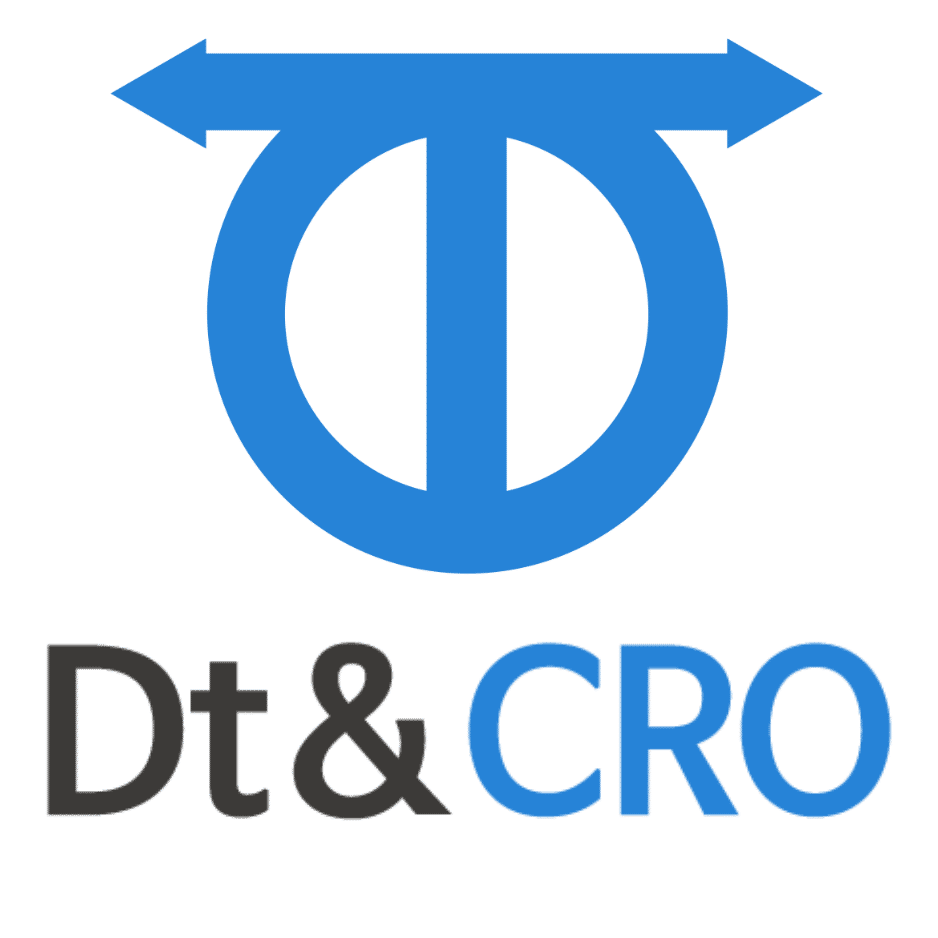预约演示
更新于:2025-09-13

DT&CRO Co., Ltd.
更新于:2025-09-13
概览
标签
皮肤和肌肉骨骼疾病
免疫系统疾病
遗传病与畸形
小分子化药
关联
2
项与 DT&CRO Co., Ltd. 相关的药物靶点- |
作用机制- |
在研适应症 |
非在研适应症- |
最高研发阶段临床前 |
首次获批国家/地区- |
首次获批日期- |
靶点- |
作用机制- |
在研适应症 |
非在研适应症- |
最高研发阶段临床前 |
首次获批国家/地区- |
首次获批日期- |
100 项与 DT&CRO Co., Ltd. 相关的临床结果
登录后查看更多信息
0 项与 DT&CRO Co., Ltd. 相关的专利(医药)
登录后查看更多信息
1
项与 DT&CRO Co., Ltd. 相关的文献(医药)2022-01-01·Journal of toxicologic pathology4区 · 医学
Evaluation of Caspase-3 and Ki-67 expression in squamous cell hyperplasia of the stomach induced by <i>Platycodi radix</i> water extract in Sprague–Dawley rats
4区 · 医学
Article
作者: Park, Youngil ; Kang, Min-Soo ; Han, Chang Hoon ; Jeong, In-Yeong ; Cha, Seung-Beom ; Park, Chae-Gyoo ; Gong, Bo-Ho ; Kang, Boo-Hyon ; Lee, Hyun-Kul ; Li, Yinghua ; Kim, Hak-Soo ; Song, Si-Whan ; Kim, Young-Suk
Platycodi radix is widely used in traditional herbal medicine for the treatment of bronchitis, asthma, pulmonary tuberculosis, hypertension, hyperlipidemia, and diabetes. This study aimed to investigate cell proliferation (Ki-67) and apoptosis (Caspase-3) potential in squamous cell hyperplasia of the stomach induced by a Platycodi radix water extract in a subchronic toxicity study. One hundred formalin-fixed, paraffin-embedded stomach tissues of rats treated with Platycodi radix at doses of 0, 500, 1,000, and 3,000 mg/kg body weight/day were used for the analysis. They were conventionally stained using hematoxylin and eosin (H&E) and immunohistochemically (IHC) stained using caspase-3 and Ki-67 antibodies. The incidence of squamous cell hyperplasia was significantly increased in the 3,000 mg/kg b.w./day treatment group in both sexes (p<0.01). However, the hyperplastic change was completely repaired after 4 weeks of recovery period. Ki-67 expression was similar in all groups, with no statistically significant differences among the groups. Caspase-3 expression was significantly increased in both sexes in the 3,000 mg/kg b.w./day treatment group (p<0.01), compared with the vehicle control groups, and then reduced to normal levels in the recovery groups in both sexes. In conclusion, this study showed that squamous cell hyperplasia induced by the Platycodi radix water extract in the limiting ridge of the stomach is not considered to be abnormal proliferative change; as a result, squamous cell hyperplasia is considered to be a non-adverse effect when induced by the oral administration of the Platycodi radix water extract once daily for 13 weeks in rats.
1
项与 DT&CRO Co., Ltd. 相关的新闻(医药)2024-05-17
Eisai's bullish Leqembi sales projection, Takeda's Alzheimer's licensing deal and the latest on the BIOSECURE Act made our news this week.
Following a reportedly bullish assessment from Medicare, Eisai has projected a significant sales increase for Leqembi. Takeda paid $100 million upfront for an option to license an anti-amyloid vaccine from AC Immune. The House Oversight Committee voted overwhelmingly to advance a tweaked version of the BIOSECURE Act. And more.
1. Eisai predicts sharp Leqembi sales increase as launch efforts begin to bear fruit
After filing hitch, Eisai and Biogen begin rolling FDA submission for subcutaneous Leqembi
Eisai expects Leqembi sales for its 2024 fiscal year will reach 56.5 billion Japanese yen ($364 million), compared with 4.26 billion Japanese yen ($27 million) during the 2023 fiscal year that ended in March. The company believes it and partner Biogen have improved Alzheimer’s disease diagnosis and treatment infrastructure in the U.S. and Japan. Meanwhile, after a short delay, the two companies have started a rolling FDA submission for a subcutaneous version of the anti-amyloid antibody that can be dosed at home.
2. Takeda pays AC Immune $100M upfront for Alzheimer's drug as phase 2 readout nears
Fellow Japanese drugmaker Takeda is also making a bet on Alzheimer’s disease, paying $100 million upfront for AC Immune’s anti-amyloid beta vaccines. One candidate in the deal, coded ACI-24.060, is in a phase 1b/2 trial in patients with prodromal Alzheimer’s or Down syndrome. The option exercise fee and milestone payments could add up to $2.1 billion.
3. House's updated biosecurity bill sets 2032 decoupling deadline for industry's work with WuXi AppTec, WuXi Biologics
In new letter to Defense Department, WuXi AppTec refutes claim of secret data transfer
The House Committee on Oversight and Accountability voted overwhelmingly to advance the BIOSECURE Act for a full House vote, Reuters reports. The updated version of the bill would give biopharma companies until Jan. 1, 2032, to end their existing contracts with WuXi AppTec and WuXi Biologics plus three gene sequencing firms targeted in the legislation. For potential new targets of the bill, companies would have five years to cut ties with them. Meanwhile, WuXi AppTec is also defending itself against a claim that it shared a U.S. client’s data with Beijing without consent.
4. After FTC stalled Sanofi deal, Shionogi secures Maze's Pompe disease drug for $150M
Five months after the U.S. Federal Trade Commission derailed Sanofi’s proposal to acquire Maze Therapeutics’ Pompe disease program, Shionogi has picked up the asset for $150 million upfront and undisclosed milestones. The candidate, MZE001, is a GYS1 inhibitor designed to stop the toxic buildup of glycogen. It has the potential to become the first oral treatment for Pompe.
5. Shionogi's antiviral comes up short in global COVID-19 trial
Shionogi also suffered a setback this week. Its once daily protease inhibitor ensitrelvir, which is approved in Japan under the brand name Xocova, failed to significantly beat placebo in reducing the time to sustained resolution of 15 common COVID-19 symptoms in a global phase 3 trial. Despite the primary endpoint miss, Shionogi noted a significant difference in the time to resolution of six COVID symptoms.
6. Hengrui licenses GLP-1 portfolio to $400M biotech startup backed by Bain, Atlas (PDF, Chinese)
A new GLP-1 player has emerged with $400 million funding from Bain Capital, RTW Investments, Atlas Venture and Lyra Capital plus a portfolio of three cardiometabolic candidates from Jiangsu Hengrui Pharma. Hengrui out-licensed the meds for $110 million in upfront and near-term payments, plus a 19.9% stake in the startup, called Hercules. One of the candidates is a dual GLP-1/GIP receptor agonist, the same mechanism as Eli Lilly’s tirzepatide.
Other News of Note:
7. Under FDA scrutiny, Aurobindo's Eugia tallies a 5th Form 483 in less than a year
8. Radyus and Dt&CRO partner to bring more South Korean biotechs to the US

疫苗临床3期并购上市批准临床2期
100 项与 DT&CRO Co., Ltd. 相关的药物交易
登录后查看更多信息
100 项与 DT&CRO Co., Ltd. 相关的转化医学
登录后查看更多信息
组织架构
使用我们的机构树数据加速您的研究。
登录
或

管线布局
2026年02月08日管线快照
管线布局中药物为当前组织机构及其子机构作为药物机构进行统计,早期临床1期并入临床1期,临床1/2期并入临床2期,临床2/3期并入临床3期
临床前
2
登录后查看更多信息
药物交易
使用我们的药物交易数据加速您的研究。
登录
或

转化医学
使用我们的转化医学数据加速您的研究。
登录
或

营收
使用 Synapse 探索超过 36 万个组织的财务状况。
登录
或

科研基金(NIH)
访问超过 200 万项资助和基金信息,以提升您的研究之旅。
登录
或

投资
深入了解从初创企业到成熟企业的最新公司投资动态。
登录
或

融资
发掘融资趋势以验证和推进您的投资机会。
登录
或

生物医药百科问答
全新生物医药AI Agent 覆盖科研全链路,让突破性发现快人一步
立即开始免费试用!
智慧芽新药情报库是智慧芽专为生命科学人士构建的基于AI的创新药情报平台,助您全方位提升您的研发与决策效率。
立即开始数据试用!
智慧芽新药库数据也通过智慧芽数据服务平台,以API或者数据包形式对外开放,助您更加充分利用智慧芽新药情报信息。
生物序列数据库
生物药研发创新
免费使用
化学结构数据库
小分子化药研发创新
免费使用